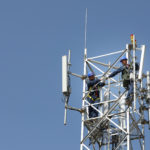
People are using private channels such as WhatsApp more to discuss the news they find online, instead of sharing and talking about it on larger social networks such as Facebook and Twitter, a study from Reuters Institute has revealed.
Especially among young people, Facebook has become less important of an avenue for news, according to the study of 74,000 respondents in 37 markets.
Usage of the social network for news is down 9 percentage points in the United States in 2017, while that for younger audiences has fallen a significant 20 per cent.
One participant even said that she put on a mask on Facebook but on private discussions on WhatsApp, she could be herself and discuss issues honestly.
That’s perhaps a rather unsurprising finding, given the examples of people getting into trouble for spewing hateful, racist or maybe just distasteful remarks online.
What looks bad privately often looks worse when it is broadcast. Even if your posts are set to private, they can be leaked. People are realising that “friends” on Facebook aren’t always friends in real life.
On WhatsApp, however, you typically have smaller groups, perhaps of closer friends, to talk more openly about sensitive topics. And there are no shortage of divisive issues.
From the Palestinian conflict to LGBT issues, many of them will push people towards other likeminded people. There’s a clear sense that Facebook is becoming a bit of an echo chamber.
So, discussions go private. This way, conflict is avoided in some long-drawn discussion on Facebook or Twitter.
Yet, the deeper one goes into the echo chamber, the less one hears the other side of the argument. As a result, long-held views are not going to be challenged.
If Facebook and Twitter once promised a free flow of views in the past, and connected old schoolmates from years ago, they are now driving people back to private channels of communications.
Perhaps at no time has the Internet divided people more than it has connected them. That is the uncomfortable reality today for people on the largest social networks.






